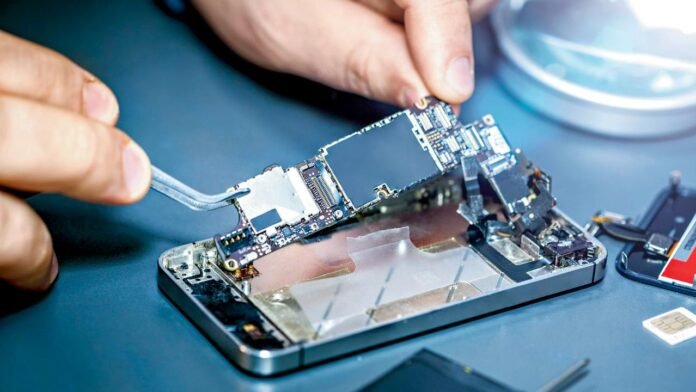Snapdragon chips made by Qualcomm have been the de facto king of smartphones. Their latest chipset, the Snapdragon Elite, will be featured in a bunch of new flagships that will empty your bank accounts in the coming months. Here’s a list.
ASUS ROG Phone 9
I personally love gaming phones. They are chunky and over the top when it comes to specs. The new ROG Phone 9 and 9 Pro from ASUS are no different. The phone has a large 6.78-inch LTPO AMOLED display that supports a 185Hz refresh rate, HDR10, and a peak brightness of 2500 nits. Gorilla Glass Victus 2 protects the screen. Being a gaming phone, there are programmable RGBs on the back. Of course, the phone is powered by the Snapdragon 8 Elite chipset. If you go with the standard variant of the phone, you have a choice of up to 16GB of RAM and up to 512GB of storage. The pro version has up to 24GB of RAM and up to 1TB of storage space for all those games. While none of the previous generations of this phone have been particularly known for their camera. They do make an attempt to have something decent for the ROG 9, we have a 50MP main, 13MP, ultrawide, 5MP macro and a 32MP selfie setup. While the Pro version gets a 50MP, 32MP, 13MP and the same 32MP selfie cam. The battery is decent but not over the top 5800mAh on both devices, with support for 65W charging; the charger is hopefully included in the box. ASUS likes to play with the price in India as opposed to the international market, so we should get a highly competitive product in terms of price.
iQOO 13
The iQOO 13 is set to launch in the next few days and will also feature the Snapdragon Elite. The chip will be paired with a choice of 12GB or 16GB of RAM and hopefully up to 1TB of storage. The screen is a 6.82-inch LTPO AMOLED with a 144Hz refresh rate. The iQOO 13 will come with a triple-camera system on the rear, a 50MP main camera with OIS, a 50MP telephoto lens and a 50MP ultra-wide lens. Selfie lovers get a crisp 32MP front camera. The new Funtouch OS is based on Android 15 and will come with a bunch of AI features as well. The phone will be available in India in only two colours: the BMW cobranded legend edition, which is essentially a matted white, or the Nardo Grey. What is Nardo? Well, I don’t know. It looks like a normal grey in pictures. The massive hunk of glass and metal will be charged by the massive 6150mAh battery, and the device comes with a 120W supercharging in the box. The phone charger can deliver a full charge in just 30 minutes. The price isn’t out yet, but rumours are that it should start at around `60,000.
Realme GT 7 Pro
This is the first device to launch. It went on sale late last week for a starting price of `59,999. For this princely sum, you will receive a phone with the Snapdragon Elite 12GB of RAM and 256GB of storage. If you pay a bit more, you can upgrade to the 16GB, 512GB variant. Both variants are available in Mars Orange and Grey. A bunch of AI features are also being thrown in to take advantage of the new chipset’s capabilities. For the screen, you have a nice large 6.78-inch display with a 1264×2780 resolution, and it is protected by Gorilla Glass 7i. The front camera is a decent 16MP that’s capable of doing 1080p videos. On the rear camera setup, we have two 50MP cameras, one for telephoto and the other for wide-angle shots; there is also an FOV camera to give you beautiful bokeh while spanning up pictures. The phone has a 5800mAh battery that is capable of charging up to 100 per cent in just 30 minutes—using the included charger. The phone uses a custom Android 15 called Realme UI 6.0.
OnePlus 13
OnePlus is expected to launch its Snapdragon Elite-based phone sometime in January of next year. However, we know a lot about it because the phone has already launched in China. While there will be some differences between the two, most of the specs should be carried forward without much change. The phone will offer up to 24GB of RAM and a maximum of 1TB of storage. It will feature a 6.82-inch LTPO AMOLED screen with 1440×3168 resolution and a refresh rate of 120Hz. The 13 has a triple 50MP camera setup with Hasselblad colour calibration, and for selfies, you get a respectable 32MP front-facing camera. The phone will come with a 6000mAh battery and will mostly come with a 100W charger which should fully charge the phone in under 45 mins. The international variant has three colour choices: Black, Blue and White. No doubt they will be called something fancier, though.
Xiaomi 15
Xiaomi has two flagships this year, the 15 and the 15 Pro. The normal edition sports a 6.36-inch LTPO OLED display with a 120Hz refresh rate, while the Pro, ups the size to 6.73 inches. Both phones thankfully have the Snapdragon 8 Elite and offer up to 16GB of RAM and 1TB of storage. However, these storage and RAM options might not be the same when the phone launches in India. Both phones feature the same triple 50MP camera setup. For photography, both models feature a triple 50MP camera setup. The cameras come with the usual Leica branding. For selfies, a 32MP camera is provided in the front. The regular edition of this phone gets only a 5400mAh battery capacity, while the Pro gets a larger 6100mAh unit, both supporting 90W wired and 50W wireless charging. The phone will come with Xiaomi’s Hyper OS after MIUI was put to rest recently.


